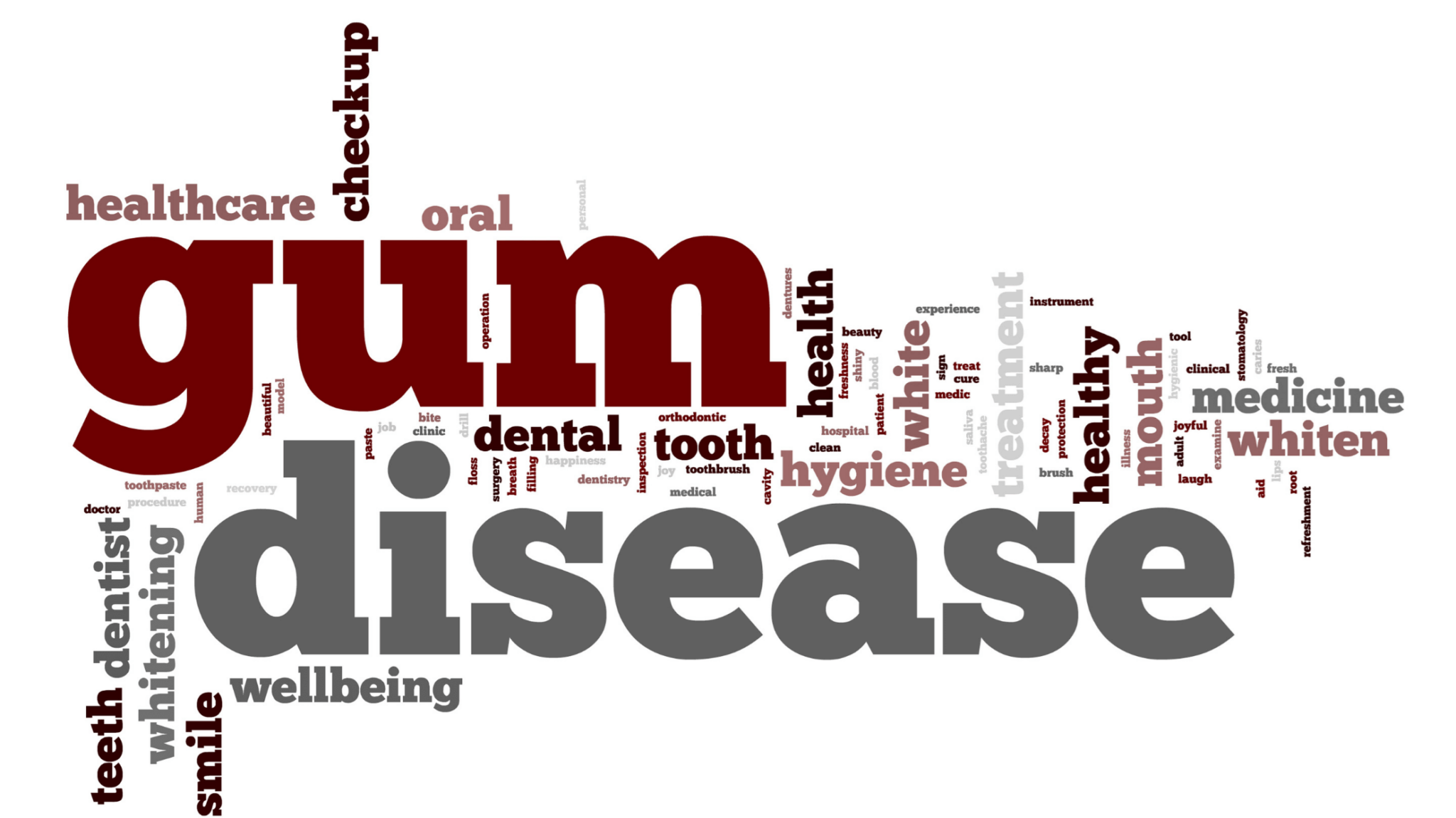A guide to understanding the ins and outs of gingivitis and gum disease, and a few easy at-home tricks to help manage and prevent them from spreading
Are gingivitis and gum disease contagious? From a young age, we’re all taught to brush our teeth twice a day to prevent plaque buildup. But what exactly is plaque, and what’s so bad about it?
Plaque is a sticky film that forms on your teeth when bacteria in your saliva mixes with sugar, acid, or starch. And it only needs 12 hours to develop.
If you brush twice a day, floss each day, and see your San Diego dentist regularly, chances are you won’t have to worry about it.
But if you’ve let your dental health slide a bit, plaque can set up shop on your teeth and cause gum inflammation––otherwise known as gingivitis.
Gingivitis is characterized by swelling and irritation, often in the form of red or bleeding gums. This condition is easily treatable and doesn’t produce any long-term damage. But if left unchecked, it’s an entirely different story.
If you ignore the signs and symptoms of gingivitis, plaque and bacteria will continue to grow, fester, and can even spread to other people!
Whether you’re showing symptoms yourself or you live with someone who does, it’s essential to understand gingivitis, gum disease, and how to prevent these periodontal issues from spreading.
What is Gingivitis?
Gingivitis is a condition where your gums become inflamed, and it can affect anyone with poor oral hygiene.
This inflammation occurs when bacteria between your teeth is left to grow and causes plaque buildup. And teeth really don’t like plaque. This sticky film irritates your gums, produces inflammation, and can cause them to bleed when brushing or flossing.
At this stage, your bone, connective tissue, and teeth are safe from any damage. But if left untreated, gingivitis can turn into something far more serious.
That’s why it’s crucial to see your San Diego dentist as soon as you notice any of the symptoms listed above. The sooner you seek treatment, the safer your smile will be!
What is Periodontal Disease (Gum Disease)?
When gingivitis is free to run rampant, you can develop periodontitis––also known as gum disease or periodontal disease.
Periodontitis is a condition where the inner layer of your gum and bone begins pulling away from your teeth. This causes small pockets to form between the teeth and gums.
And these small pockets are big trouble. They can collect debris, store bacteria, and become infected. As your immune system tries to fight off the infection, the plaque can continue to grow beneath the gum line, leading to further issues.
If you develop gum disease, the plaque may begin to develop toxins that can break down the bone and connective tissue that hold your teeth in place.
Is Periodontitis Contagious?
Periodontal disease is progressive and transfers from one infected person to another and causes infection in them.
In this disease, once the connective tissue begins breaking down, the pockets between your teeth and gums will continue to get deeper and destroy more bone and connective tissue.
The late stages of periodontitis, your teeth will no longer be secured in place. But the fact is they can even end up coming loose and falling out.
According to the National Institute of Dental and Craniofacial Research, periodontal disease (gum disease) is the leading cause of adult tooth loss.
Is Gum Disease Contagious?
Apart from periodontal disease, many of you think can gum disease spread to another person? Yes, contacting an infected person put you at risk of getting gum disease.
It spreads through the saliva of an infected person and using contaminated utensils. Moreover, this contagious disease allows the bacteria to invade the healthy place and causes infection in the gums.
Is Gingivitis Contagious? How Gingivitis and Gum Disease Spread
According to the American Academy of Periodontology (AAP), periodontal disease isn’t technically contagious. However, it can spread from one person to the next because the bacteria that causes the inflammation is contagious and can spread via saliva.
As a result, if you have gingivitis or gum disease, you can spread the bacteria that cause it through contact with another person’s saliva.
With that said, it’s unlikely to contract gingivitis simply from coming into contact with someone else’s saliva as long as you stay on top of your dental health. Exposure to bacteria combined with poor oral hygiene is what causes these conditions to develop.
Now, let’s look at some of the ways gum disease spreads and how you can protect your smile and others’.
Sharing Food, Drinks, and Utensils
The bacteria in your saliva can spread through cups, straws, and other eating utensils that you use. Sharing these items with other people while you have a periodontal problem can pass this bacteria to them, especially if they have poor oral hygiene.
The AAP recommends that if you, a family member, or a friend suspect you have periodontal disease, you should avoid sharing oral health equipment and eating utensils. This includes cups, straws, forks, knives, toothbrushes, and any other item that comes in contact with your saliva.
Kissing
Kissing sometimes involves a direct exchange of saliva, so if you’re kissing someone who has gingivitis and you have poor oral hygiene, you may contract the bacteria and develop the condition as well.
But don’t worry, we’re not saying kissing is off-limits! It’s simply a reminder of how important it is to floss, brush your teeth, and schedule regular cleanings and exams.
However, if your gums are bleeding when you brush or you’ve noticed inflammation in your mouth, you should avoid kissing until you’ve gotten a checkup at your San Diego dentist.
Prevent Gingivitis By Staying On Top Of Your Dental Health
In addition to avoiding sharing saliva, there are other measures you can take to keep your smile safe.
Here are a few ways to manage your oral health and prevent gingivitis:
Step Up Your Oral Hygiene Habits
The best way to prevent periodontal problems is to practice good oral hygiene.
Not only should you brush your teeth at least twice and floss at least once a day, but you should also use toothpaste that contains fluoride. Fluoride is a mineral that helps protect teeth from cavities and possible damage caused by acid or bacteria.
The American Dental Association also suggests:
- Using a soft-bristled toothbrush
- Replacing your toothbrush every 3-4 month
- Visiting your dentist for regular professional cleanings and exams
The key to optimal dental health is consistency. It won’t do you any good to stick to these habits for just a month or two – you should make them a life-long practice.
You can even go the extra mile by asking your dentist to watch as you brush your teeth. He or she will be able to evaluate your technique and give you tips on how to brush your teeth the right way.
Don’t Smoke
Studies have shown a major correlation between people who smoke and those who develop gingivitis and periodontitis. In fact, periodontal disease is between 2 and 20 times higher in people who smoke compared to people who don’t.
Smoking increases bacteria and plaque buildup in the mouth which can lead to gum problems down the line. It can also increase the number and severity of periodontal pockets and tissue damage, causing the disease to progress faster than for non-smokers.
If you want to keep your teeth healthy, avoid smoking or start taking steps to quit.
See Your San Diego Dentist Regularly
You should be going to the dentist every 6 months – even if you have healthy teeth. Professional cleanings help prevent plaque buildup that would otherwise lead to gum disease.
If you aren’t showing symptoms, it can be hard to tell if you have gingivitis. Your dentist will clean your teeth, diagnose, and treat any issues that could lead to lasting damage.
When Should You Visit a San Diego Dentist?
Gingivitis isn’t always painful, and the symptoms aren’t always easy to spot. Red, bleeding, and swollen gums are all early warning signs of a periodontal issue.
If you experience any of the following symptoms, then it’s time to make an appointment at your San Diego dentist:
- Your gums feel swollen, inflamed, and are tender to the touch
- Your gums bleed when you brush or floss your teeth
- You struggle with bad breath that won’t go away
- You notice pus in between your teeth and gums
- Your gums are receding
- You experience pain or sensitivity when chewing
- You have loose teeth or gaps forming between your teeth
If you’re looking for quality dental care in San Diego, Dental Express is your one-stop for a clean, healthy smile. Even though we emphasize proactive care to help prevent gum disease, we’re always prepared to treat it when it develops.
We offer both surgical and nonsurgical solutions for periodontal disease, including periodontal cleanings, antibiotics, multiple tooth extractions, gum surgery, and root planing and scaling.
Give us a call to learn more about the periodontal dentistry services we offer and schedule an appointment today at any of our locations in San Diego, CA.
Keep Reading
How Does Genetics Affect Your Dental Health?
What is Plaque and How is it Removed?

